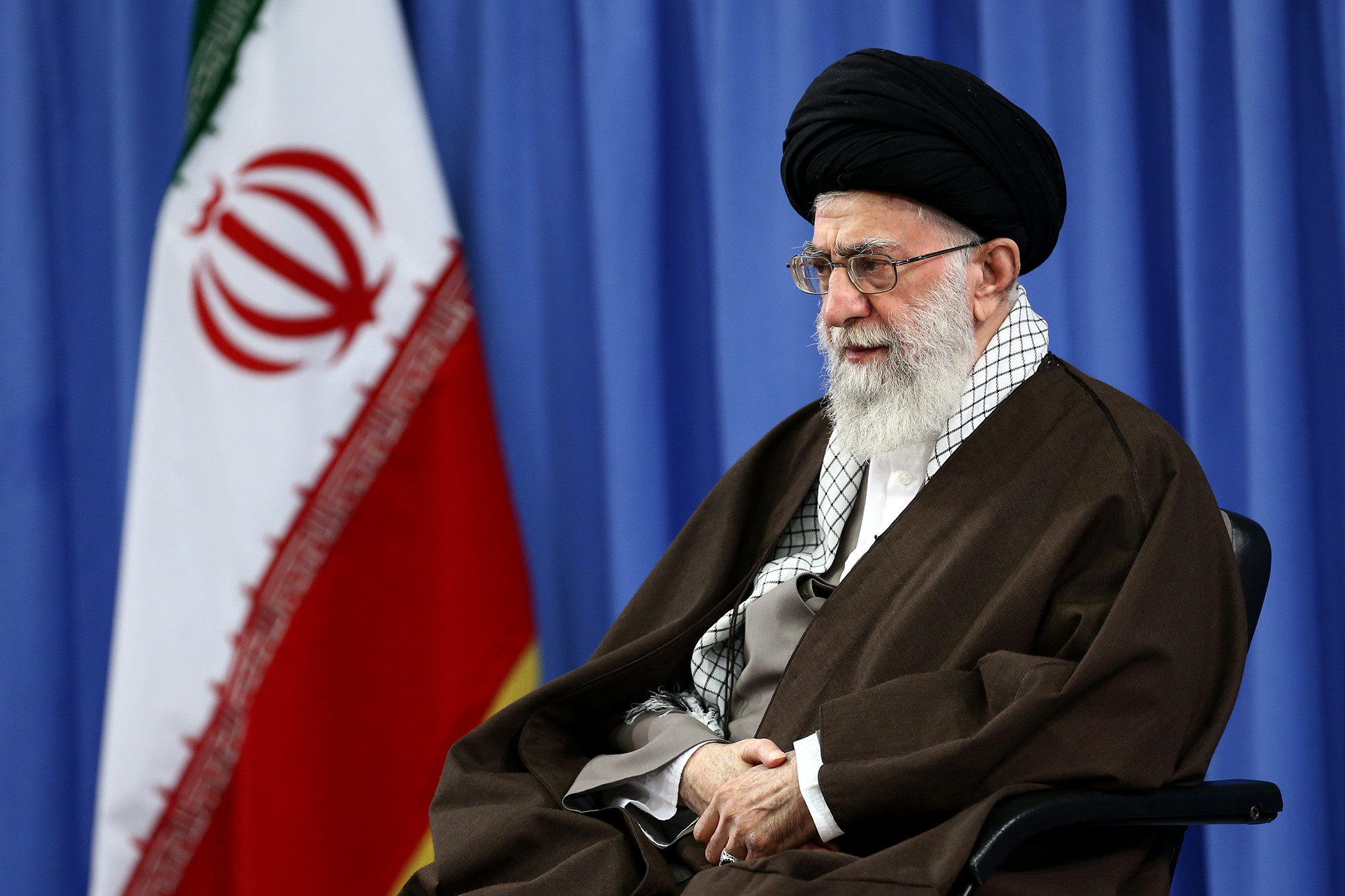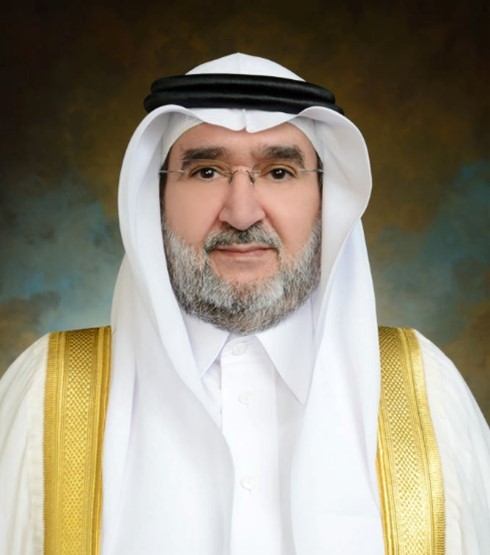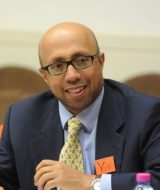
- 01 Jun 2021
Iran-GCC Dynamics and Regional Security
(This event is organised by MEI Political Economy research cluster.)
Abstract
Against the backdrop of two interlinked events – the increased Arab-Israeli closeness resulting from the Abraham Accords and the attempts to resurrect the Iran nuclear deal, this webinar will explore the current nature and future dynamics of the relationship between Iran and the GCC states under the paradigm of regional security. Panelists will delve into two important dimensions of the Iran-GCC dynamics – viz., their respective security concerns and the possibility of common grounds for cooperation between them. Through its deliberations and discussions, the session will explore the viability of a regional security arrangement for the Gulf region which includes the six GCC states, Iran and Iraq and ponder over its acceptability by these states as well as other important regional stakeholders such as Israel.
This public talk will be conducted online via Zoom on Tuesday, 1 June 2021, from 4.00pm to 5.30pm (SGT). All are welcome to participate. This event is free, however, registration is compulsory. Successful registrants will receive a confirmation email with the Zoom details closer to the date of the event.
Image Caption: Iranian supreme leader, Supreme Leader Ayatollah Ali Khamenei attends a meeting with commanders of paramilitary division of the elite Revolutionary Guard in Tehran. (Office of the Iranian Supreme Leader via AP)
Listen to the full event here:
Watch the full event here:
Read the Summary of Event Proceedings:
By Ilyas Salim
Research Assistant, Middle East Institute, National University of Singapore
Dr Dina Esfandiary
Senior Advisor at the International Crisis Group for the Middle East and North Africa
Dr Esfandiary said that there is a clear mismatch in security perceptions between the GCC and Iran, which is part of the reason behind the longstanding tensions in the region.
In many ways, Iran’s foreign policy objectives are no different from any other state: it seeks to preserve its territorial integrity, secure its borders and increase its influence in the region. She argued that Iraq represents Tehran’s number one priority — both states share a porous border of over 900 miles and Iraq has been a vital economic and political parter particularly at a time where world powers were trying to isolate Iran. Maintaining and nurturing relations with the Hizballah and Syria also remain key priorities for Iran, while the GCC, Arab states and Yemen figure relatively low on Tehran’s foreign policy agenda.
Ira’s foreign policy and security concerns have been coloured by several key themes.
Firstly, there is considerable frustration regarding the Joint Comprehensive Plan of Action (JCPOA) nuclear agreement — many Iranians see this as the foremost dilemma to resolve before any other issue can be discussed with the world powers. Secondly, Iran’s security paradigm is influenced by its longstanding tensions with the Arab states – while Tehran would like to solve some of these tensions, it nevertheless shrewdly understands that it remains a useful pressure point in the region in light of the close relations between the Arab states and the US. Thirdly, the recent normalisation agreements between Israel and some of the Arab states have caused Iran much concern especially with regard to their military implications. For instance, Israel now has access to Persian Gulf waters and regional ports and is discussing potential military co-operation with the UAE.
However, the perspective from the other side of the Gulf somewhat differs.
The Arab states regard Iran as an ideological and religious competitor and the roots of their longstanding rivalry precedes the 1979 Iranian Revolution. Arab states remain wary of Iran’s influence in Arab affairs and its use of regional proxies to further it.. Other security concerns revolve around the spread of political Islamism which poses a problem to GCC members, especially the UAE. These concerns have been exacerbated as US minimises its traditional role as an offshore balancer in the region. As such, threat diversification is seen as key for the Gulf Arab states, motivating them to pursue stronger relations with other players such as Russia, China and even other non-state actors.
Dr Abdulaziz Sager
Founder and Chairman of the Gulf Research Center
Dr Abdulaziz Sager provided his views on the GCC’s geopolitical assessment of the region, saying that the Gulf Arab states continue to regard Iran as prominent mainly due to the provocative behaviour of its government. He said that Iran and the GCC states disagreed over the presence of international forces in the region, with Tehran being against it while the Gulf states welcomed the role of the US as an offshore balancer. Although the West regards Iran’s nuclear ambitions as the foremost security issue in the region, the Gulf Arab states are equally wary of other concerns, including maritime tensions and Tehran’s expansionist policies.
The ongoing discussions in Vienna between Iran and the world powers over a renewed nuclear deal have provoked an ambivalent response from the GCC states. Although in principle these states support efforts to return to the JCPOA nuclear deal, they remain anxious that their other security concerns will continue to be unaddressed. Dr Sager said that in moving forward, any security architecture in the region should take into account the concerns of all parties, mainly the six GCC countries, Iran, Iraq and Yemen. In particular, the Gulf Arab states continue to feel threatened by Iran’s interventionist policies in support of regional proxies and its supply of military equipment and know-how to non-state actors such as Hamas, Hizballah and the Houthi groups.
The Abraham Accords involving Israel, Bahrain and the UAE have caused Tehran concerns about their potential military dimensions as well as the implications on Arab support for Palestine. However, Dr Sager said that military ties and activities stemming from the agreements are still in their rudimentary stages and that in any case, Saudi Arabia remains committed to its support of Palestine and believes peace should be achieved before it moves on to any normalisation agreements.
Dr Abdullah Baabood
Chair of the State of Qatar for Islamic Area Studies and Visiting Professor at the School of International Liberal Studies, Waseda University, Tokyo, Japan
Dr Baabood agreed with the previous speakers that tensions between the GCC states and Iran are the result of diverging perceptions of security held by different parties. He also noted that state security and regime security are often conflated together — which is another source of misperception — and that there is a tendency to focus on hard security and overlook ‘soft’ security challenges. The latter category can be used to describe areas such as food security, economic security and so on.
He said that despite this plethora of hard and soft security challenges, Middle Eastern states have not been able to develop any kind of security architecture that is both comprehensive and inclusive enough to facilitate dialogue, diplomacy and confidence-building measures within the region. A central reason for this lack of success is because of persistent rivalries and exclusivity. The GCC, for instance, sees itself as an exclusive club of monarchies and has deliberately excluded Iran, Iraq and Yemen. Large states such as Saudi Arabia and Iran are locked in a zero-sum competition for regional hegemony and even middle powers are taking on a more assertive posture as the US withdraws from the region.
These rivalries have altogether led to inventible misperceptions between states, leading them to prioritise a security lens in viewing each other. As such, it is essential for the region to develop a robust platform for dialogue in order to dissipate misperceptions and collectively tackle issues that go beyond hard security, especially because these issues will be exacerbated by broad trends such as the global pandemic and climate change.
Highlights from the Q&A
A key thread in the discussion concerned the presence and possible trajectories of external powers within the region. States such as Russia and China for instance, motivated in part by the general perception that the US is gradually diminishing its traditional role in the region, have pushed for a more active engagement with Middle Eastern countries.
Dr Esfandiary said that the US withdrawal has pushed Middle Eastern states to hedge their bets and look towards China. Given the crippling Western-imposed sanctions and international isolation, Iran, in particular, has little choice but to engage Beijing. While the Iranians have had a long historical engagement with the Chinese, Sino–Iranian relations have arguably continued to be somewhat transactional compared to the Arab Gulf states and there continues to be a degree of suspicion between both countries. However, the pragmatic and compartmentalised nature of their engagement has allowed them to build a long-lasting relationship by focusing on issues of common interest and ignoring other areas of disagreement. Dr Esfandiary also expressed scepticism regarding the recent 25-year Iran–China agreement as a unique game changer in the region, noting that Beijing has been careful to ensure that its relationships with Middle Eastern countries remain relatively even.
Like China, Russia has maintained a presence in the Middle East, playing a significant role in Syria, Libya and Yemen. Both Dr Sager and Dr Baabood agreed that while Russia is not the global power it once was, it remains a potent force in the Middle East and can have much influence in the areas it chooses to selectively engage in. This is seen, for instance, in Syria, where its unwavering support has been a crucial anchor for Bashar al-Assad’s regime. Iranian-Russian relations continue to be a priority for Russia and Moscow is currently taking a keen interest in developments in southern Yemen.
About the Speakers

Founder and Chairman
Gulf Research Center
Jeddah
Dr Abdullah Baabood
Chair of the State of Qatar for Islamic Area Studies,
Visiting Professor
School of International Liberal Studies Waseda University
Tokyo
Dr Dina Esfandiary
Senior Advisor
Middle East and North Africa
The International Crisis Group
London
A Saudi expert on Gulf politics and strategic issues, Dr Abdulaziz Sager is the Founder and Chairman of the Gulf Research Center, a global think-tank based in Jeddah with a well-established worldwide network of partners and offices in both the Gulf region and Europe. In addition to having authored and edited numerous publications, Dr Sager frequently contributes as a commentator on major international media channels such as Al Arabiya, France 24 and BBC. He has also chaired and moderated Syrian opposition meetings in Riyadh.
Dr Sager holds a PhD in Politics and International Relations from Lancaster University, a MA from the University of Kent, UK and a BA from the Faculty of Economics and Administration of King Abdulaziz University.

Dr Abdullah Baabood is an academic from Oman who is currently the Chair of the State of Qatar for Islamic Area Studies and a Visiting Professor at the School of International Liberal Studies, Waseda University in Tokyo, Japan.
Dr Baabood has taught and carried out research at different universities and institutions, including the Middle East Institute, National University of Singapore and College of Humanities and Social Sciences, Hamad Bin Khalifa University, Qatar.
He previously held the positions of the Director of the Gulf Studies Center at Qatar University and the Director of the Gulf Research Center at the University of Cambridge, UK. His area focus is on the GCC states’ economic, social and political developments and their external relations. He has published widely and is frequently invited to speak at international conferences and seminars as well as on media programmes.

Dr Dina Esfandiary is a Senior Advisor at the International Crisis Group for the Middle East and North Africa. Previously, she was a Fellow in the Middle East department of The Century Foundation (TCF) and an International Security Programme Research Fellow at the Harvard Kennedy School’s Belfer Center for Science and International Affairs.
Dr Esfandiary has published widely, including in Foreign Affairs, the Atlantic, The Guardian, The Washington Post, International Affairs, the National Interest, Arms Control Today and The Washington Quarterly. She holds a PhD in the War Studies department at King’s College London and Master’s Degrees from King’s College London and the Graduate Institute of International Studies in Geneva. Her areas of expertise include Persian Gulf security and foreign relations and relations between states and non-proliferation in the Middle East.




